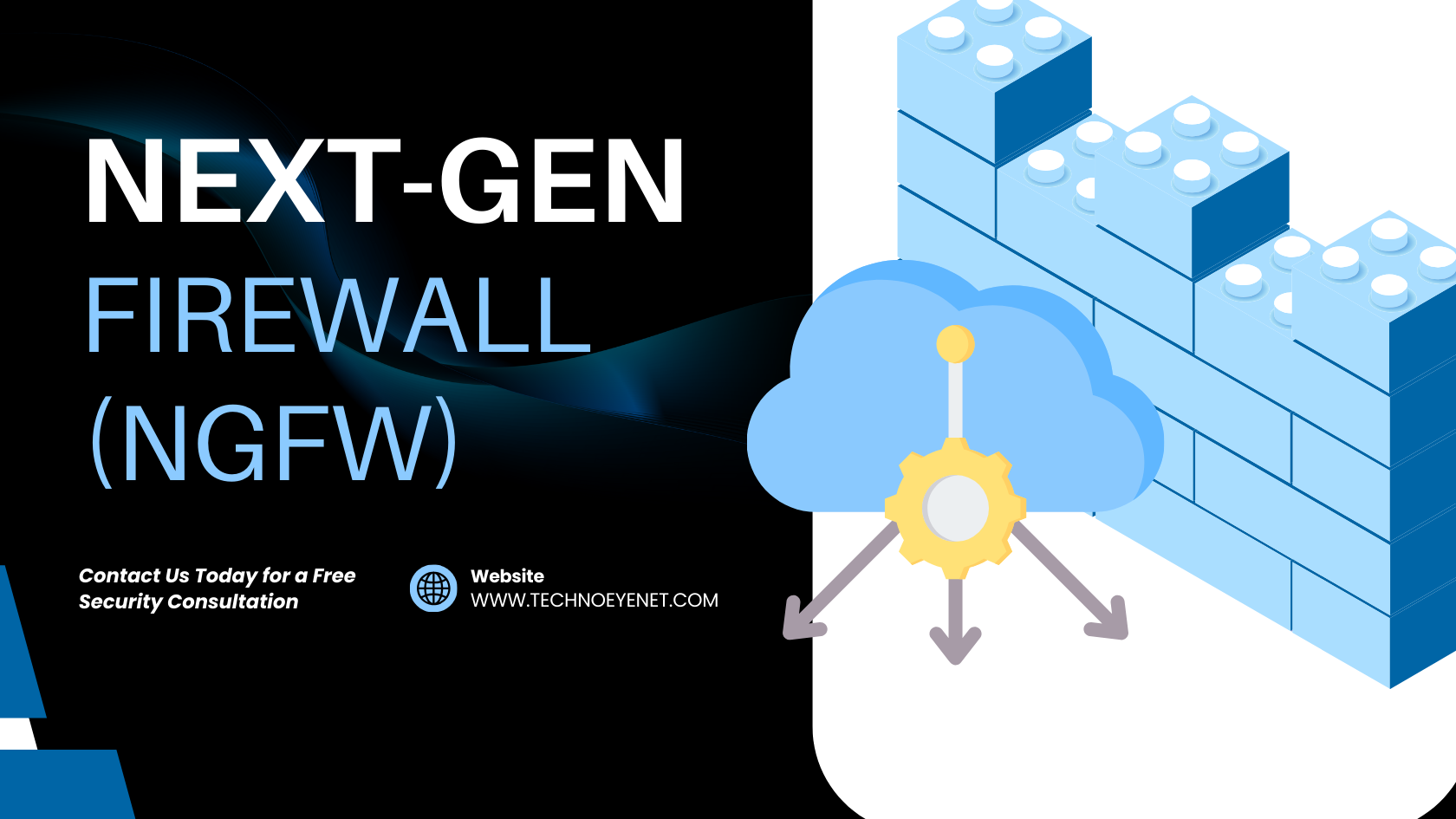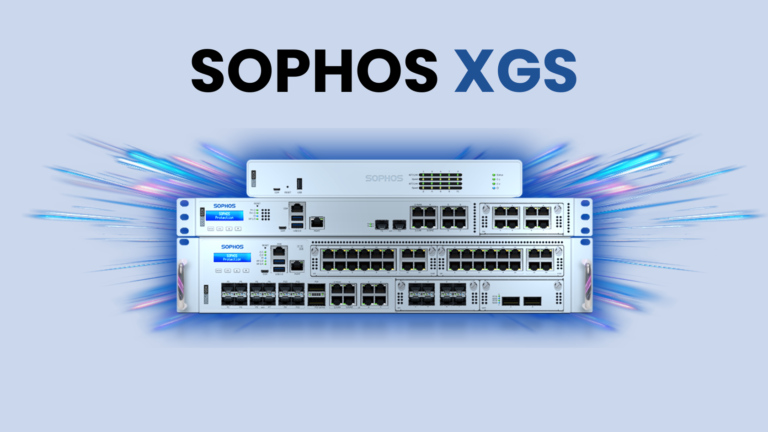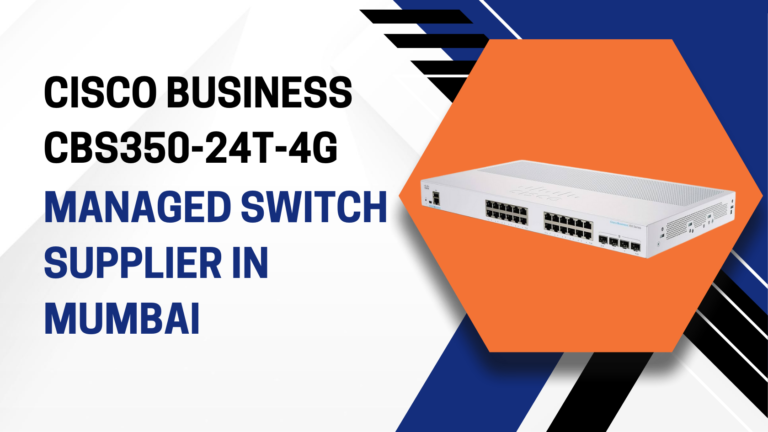Next Gen Firewall (NGFW)
In the ever-evolving landscape of cyber threats, protecting your network and endpoint devices has never been more critical. As cyberattacks grow in sophistication and scale, organizations must embrace advanced technologies to safeguard their infrastructure. Enter the next gen firewall (NGFW) — a comprehensive solution that integrates multiple security functions into a single, cohesive system. In this blog, we’ll explore the role of NGFW in modern network security, its key features, and how it can defend against the most advanced threats. Implementing a next-gen firewall (NGFW) helps organizations enhance network security by integrating advanced features like intrusion prevention systems (IPS), deep packet inspection (DPI), and application control to prevent cyber threats.
An next gen firewall (ngfw) is a next-generation firewall that takes the definition beyond what can be achieved in a stateful firewall, which has to be set up and configured manually on the premises to create a firewall for the particular organization. A traditional firewall typically allows states inspection of inbound and outbound traffic, while an next gen firewall (ngfw) includes features such as application awareness and control, integrated intrusion prevention, and cloud-delivered threat intelligence over and above traditional stateful inspection. With Techno Eye you can feel safe with next gen firewall (ngfw).
What is a Next-Gen Firewall (NGFW)?
A Next-Gen Firewall (NGFW) is an advanced firewall that goes beyond traditional firewall capabilities to offer a broader range of security functions. Unlike older firewalls, which focus solely on controlling traffic based on port, protocol, and IP address, NGFWs incorporate more sophisticated technologies like Deep Packet Inspection (DPI), Intrusion Prevention Systems (IPS), Application Control, Advanced Malware Detection, and SSL Inspection. By analyzing traffic at a much deeper level, NGFWs can identify malicious activities and enforce security policies more effectively.
A traditional firewall offers stateful inspection of network traffic, which serves to either permit or deny data flow based on various factors such as state, port and protocol. This system (of filtering) is grounded in rules that are defined by the administrator. Techno Eye’s managed security services integrate seamlessly with next-gen firewalls (NGFW), providing real-time threat intelligence and secure VPN solutions to safeguard remote access.
Conversely, a next gen firewall (ngfw) not only performs these functions, but also encompasses a broader range of capabilities. For instance, NGFWs are equipped to thwart contemporary threats, including advanced malware and application-layer attacks. According to Gartner’s definition, a next-generation firewall must incorporate:
fundamental firewall functions like stateful inspection, integrated intrusion prevention, application awareness and control to identify and obstruct potentially dangerous applications, sources of threat intelligence and pathways for upgrades to accommodate future information feeds. Although traditional firewalls have their merits, the evolution of security threats necessitates the adoption of next gen firewall (ngfw) to effectively mitigate risks. This is particularly important because the landscape of cyber threats is continually shifting.
Why Do You Need a Next Gen Firewall (NGFW)?
A next-gen firewall (NGFW) provides advanced threat protection by combining traditional firewall functions with features like intrusion detection and prevention systems (IDPS) and malware filtering. As businesses increasingly rely on cloud-based applications and integrate a mix of on-premise and remote workers, network security becomes more challenging. Traditional firewalls simply cannot cope with modern threats like advanced malware, encrypted traffic, or sophisticated attacks targeting vulnerabilities. Next gen firewall (ngfw) however, offer a multi-layered defense strategy by combining firewall analytics, advanced security processors, and other modern tools.
Here are several reasons why businesses need an Next Gen Firewall (NGFW):
- Advanced Threat Protection: As cyberattacks grow in complexity, NGFWs provide an extra layer of protection by detecting and blocking even the most advanced threats. Next-gen firewalls (NGFWs) are designed to protect against both external and internal threats by incorporating user identity awareness, allowing for granular access control policies.
- Integrated Security: Next Gen Firewall (NGFW) combine several network security features into one device or service, reducing the need for separate solutions and minimizing complexity. With the ability to perform real-time traffic analysis, a next-gen firewall (NGFW) helps prevent sophisticated attacks such as zero-day exploits and ransomware
- Application Visibility: Unlike traditional firewalls that inspect only basic traffic data, NGFWs can understand and control applications running on your network, even if they are encrypted. Techno Eye, a leader in cybersecurity solutions, offers businesses advanced next-gen firewall (NGFW) technologies and real-time intrusion prevention systems (IPS) to protect their networks from emerging threats.
- Enhanced Endpoint Protection: By integrating endpoint protection capabilities, Next Gen Firewall (NGFW) can prevent malware and other threats from spreading across the network. By deploying a next-gen firewall (NGFW), businesses can gain better visibility into network traffic, thanks to its deep packet inspection (DPI) and application awareness capabilities.

Key Features of a Next Gen Firewall (NGFW)
A Next-Gen firewall (NGFW) serves as a security appliance that meticulously processes network traffic and implements rules to obstruct potentially hazardous data. Next Gen Firewall (NGFW) develop and enhance the functionalities of traditional firewalls. They perform all the tasks that conventional firewalls undertake, however, they do so with greater efficacy and additional features.
To illustrate, consider two airport security agencies. The first agency verifies that passengers are not on any no-fly lists, ensuring their identities correspond with what is indicated on their tickets and confirms that they are traveling to destinations actually served by the airport. Conversely, the second agency, while also checking no-fly lists and similar elements, goes further by inspecting what passengers are carrying, ensuring they do not possess dangerous or prohibited items. The first agency safeguards airports against overt threats; however, the second agency also detects threats that may be more subtle.
An ordinary firewall resembles the first security agency: it either blocks or permits data (the passengers) based on its destination, whether it constitutes a legitimate network connection and its origin. In contrast, an next gen firewall (ngfw) parallels the second security agency: it scrutinizes data on a more profound level to uncover and thwart threats that might be concealed within seemingly innocuous traffic.
A key feature of next-gen firewalls (NGFWs) is the ability to enforce content filtering and URL filtering, ensuring that employees access safe websites and avoid harmful content. Let’s dive deeper into the essential features of next gen firewall (ngfw) that make it an indispensable tool for modern network security:
1. Deep Packet Inspection (DPI)
Deep Packet Inspection (DPI) is one of the most significant features of an next gen firewall (ngfw). Traditional firewalls inspect packets of data based on IP addresses and ports, but DPI goes much further. It examines the contents of packets, analyzing the data for signs of malicious code, threats, or irregular behavior. This allows the NGFW to detect threats that may be hidden inside encrypted traffic or disguised as legitimate data.
By inspecting every packet deeply, the next gen firewall (ngfw) can prevent advanced cyberattacks that bypass traditional firewalls.
2. Intrusion Prevention System (IPS)
An Intrusion Prevention System (IPS) is a core component of any NGFW. The IPS actively scans traffic for signs of known vulnerabilities, exploits, or unauthorized access attempts. It can identify and block cyberattacks in real-time, preventing threats from reaching critical systems. Whether it’s denial-of-service attacks, malware, or advanced persistent threats, the IPS can neutralize them before they cause damage.
Unlike intrusion detection systems (IDS), which only alert network administrators to potential threats, IPS goes a step further by automatically blocking harmful traffic, offering proactive protection. Techno Eye is the best company for all next gen firewall.
3. Application Control
Application Control provides visibility into the applications running on your network and allows administrators to enforce policies that govern application usage. Many organizations struggle with shadow IT, where employees use unauthorized applications that could expose the network to risks.
With NGFWs, businesses can restrict access to unauthorized applications, prioritize business-critical applications, and even block applications known to carry malware or vulnerabilities. Application control enables more granular security policies, ensuring that only trusted and necessary apps can run on the network.
4. Advanced Malware Detection
With Advanced Malware Detection, next gen firewall (ngfw) can analyze both inbound and outbound network traffic for malware infections. This feature helps identify not only traditional malware, but also more sophisticated threats such as ransomware, trojans, and worms. By using behavioral analysis and heuristic techniques, NGFWs can detect previously unknown or zero-day malware that traditional signature-based antivirus programs might miss.
Additionally, NGFWs can prevent malware from spreading by isolating infected endpoints and blocking communication with command-and-control servers. With all next gen firewall, Techno Eye is the best company for it.
5. SSL Inspection
A growing concern in network security is encrypted traffic. As more data is encrypted through SSL/TLS protocols, cybercriminals increasingly use encrypted traffic to hide their attacks. Traditional firewalls often cannot inspect encrypted traffic, leaving a critical vulnerability in the network.
SSL Inspection allows NGFWs to decrypt encrypted traffic, inspect its contents for threats, and then re-encrypt it before sending it to its destination. This ensures that even encrypted attacks are detected and blocked, providing an additional layer of protection for sensitive data.
6. Identity-Based Security
Identity-Based Security enables NGFWs to assign security policies based on user identities, roles, or devices, rather than just IP addresses. This makes it easier to enforce security policies tailored to specific individuals or groups within an organization.
For example, employees in the finance department may have access to sensitive financial applications, while HR staff may be restricted from accessing payroll data. With identity-based security, NGFWs can enforce these policies automatically, ensuring that users only have access to the resources they need.
7. Firewall with VPN Support
A Firewall with VPN support is essential for remote work environments. NGFWs can securely connect remote users to the corporate network via a Virtual Private Network (VPN), allowing encrypted communication over untrusted networks like the public internet. VPNs offer secure access to internal resources and prevent attackers from intercepting sensitive data.
NGFWs with integrated VPN support ensure that remote employees can access network resources safely while maintaining strong security.
8. Network Segmentation
Network Segmentation involves dividing a network into smaller, isolated segments to improve security. With NGFWs, you can create and enforce policies that segment your network based on various factors, such as user roles, data sensitivity, or network traffic type. This limits the lateral movement of attackers, containing any potential threats to a specific segment.
Network segmentation can also help with compliance by isolating sensitive data from less critical parts of the network.
9. Web Filtering
Web Filtering is an essential feature that allows NGFWs to block access to malicious websites, inappropriate content, and known threat sources. By using a combination of blacklists, heuristics, and reputation-based scoring, NGFWs can prevent users from visiting websites that may host malware or phishing attacks.
In addition, web filtering helps control employee browsing habits, boosting productivity by limiting access to non-work-related sites. Techno Eye is a leading company that specializes in providing innovative cybersecurity solutions, helping businesses safeguard their networks with cutting-edge technologies like AI-driven threat detection and advanced firewalls.
10. Cloud-Based Firewall
The rise of cloud-based applications and distributed networks has made traditional on-premise firewalls less effective. A Cloud-Based Firewall extends NGFW capabilities to the cloud, providing security for users and applications regardless of their location.
Cloud-based firewalls can scale more easily, protect remote users, and ensure consistent security across distributed networks. They also offer easier management, as all firewall configurations and updates are handled centrally. With the ability to analyze and block harmful applications, next-gen firewalls (NGFWs) help secure networks by preventing the use of unauthorized apps that could pose security risks.
Conclusion: The Future of Next Gen Firewall (NGFW)
In today’s digital landscape, network security is a top priority for organizations of all sizes. With the increasing sophistication of cyberattacks and the adoption of cloud-based applications, relying solely on traditional firewalls is no longer sufficient. Next Gen Firewall (ngfw) provide comprehensive protection by integrating features like Deep Packet Inspection (DPI), Intrusion Prevention Systems (IPS), Advanced Malware Detection, Application Control, and more. The integration of VPN support and SSL inspection in next-gen firewalls (NGFWs) provides secure remote access and ensures encrypted traffic is thoroughly inspected for potential threats.
By adopting NGFWs, businesses can benefit from advanced threat protection, enhanced endpoint protection, simplified firewall management, and better security policy enforcement. The integration of cloud-based firewalls, SSL inspection, and identity-based security ensures that businesses are ready to face the next gen firewall of cyber threats.
For businesses looking to future-proof their network security, next gen firewall (ngfw) offer a powerful and flexible solution that can adapt to the ever-changing cyber threat landscape. Whether you’re looking to enhance security for on-premise networks or extend protection to remote and cloud environments, Next Gen Firewall (NGFW) are an essential tool in your cybersecurity arsenal.



